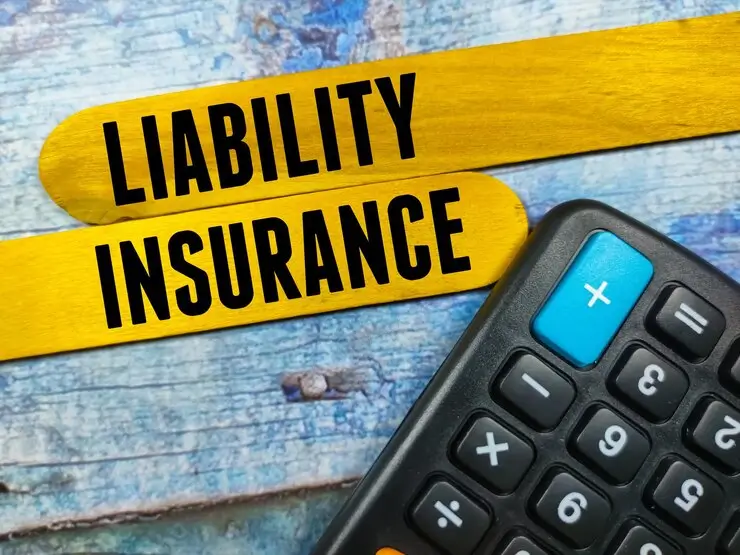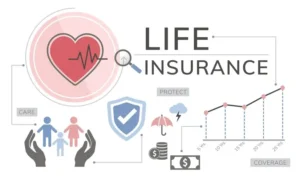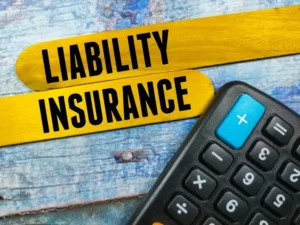Table of Contents
With the ever-changing times and times of evolution in the field of business, protection of your company from certain risks is becoming quite relevant. One important way to achieve such protection is through business liability insurance. This could be an instrument to protect your company from financial losses arising from claims made for injury, damages, and other forms of liabilities.
Business liability insurance-you will find each and every minute detail in this comprehensive guide. We look at what it is, why it matters, your types, and how one can choose the best policy for themselves. We also look at debunked myths and take a guide through the process of filing a claim Business Liability Insurance.
In modern and speedy-going business, it’s very crucial for your company to be properly safeguarded against any unexpected risk. The basic step toward such protection is through business liability insurance. This provides protection to the insured company from loss due to claims of injury, property damages, and other liabilities.
Within this comprehensive guide, we outline everything about business liability insurance, its importance, types, and the way to select the perfect policy that fits your needs. We also debunk some common myths and describe how a claim is filed .
In today’s environment and fast-changing world of business, it is important that your company is protected sufficiently from any potential risk. Business liability insurance plays an important part in this protection. Business liability insurance helps protect your company against financial loss arising from claims of injury, property damage, and other liability cases.
Why Business Liability Insurance is Important to Your Company
Business liability insurance offers a safety net that is fundamentally indispensable for any business. It pays the costs of legal claims and prevents significant financial burdens from destroying your business. One lawsuit could conceivably bankrupt a small business without adequate insurance coverage.
Aside from the protection against financial losses, there is added credibility for your company once you attain liability insurance. People will be more likely to trust your business and want to deal with you because your company has insurance.
Apart from offering you financial protection and improving your credibility, business liability insurance enables you to have peace of mind and focus on your business, knowing you may not always have to worry about possible litigation problems. It cushions you from the uncertainties of doing business, therefore making you ready for anything.
Whether a slip-and-fall accident happens on your premises or it is just a claimed case of professional negligence, having the right insurance coverage means you will not have to bear the full brunt of legal fees and settlements. This is invaluable in and of itself, as small businesses often cannot afford to absorb such financial blows.
Different Types of Business Liability Insurance Explained
Business liability insurance comes in several forms; each is designed to cover some other kind of risk. General liability insurance covers general risks such as bodily injury, property damage, and advertising injury. Professional liability insurance, also called errors and omissions insurance, covers claims arising from professional mistakes or negligence.
Product liability insurance protects the business from any claims against products that may cause injury. Finally, there is cyber liability insurance, which covers damages arising from data breaches and other forms of cyber attacks. Knowing the different types can enable you to tailor your coverage to your specific needs within your business.
Understanding all these types of business liability insurance helps in tailoring your coverage to meet your specific needs. General liability insurance is one of the primary policies that cover general risks such as bodily injury, property damage, and advertising injury.
Professional liability insurance, also called errors and omissions insurance, covers claims related to professional mistakes or negligence, hence very important to businesses offering professional services.
How to Choose the Right Business Liability Insurance Policy
Selection of the right policy essentially revolves around the assessment of peculiar risks your business may be running along with the needs pertaining to those risks. You begin first by evaluating the nature of your business, the industry in which you are involved, and the potential liabilities you may face. Consulting an insurance broker may help you draw valuable insights from his experiences and guide you through a host of available policy options.
Moreover, it will be very important to compare various insurers’ quotes and read the policy terms clearly. Make sure the coverage limits are adequate and that the exclusions in the policy will not leave your business exposed.
Careful selection of the right business liability insurance policy involves thoroughly assessing risks to your business operations. Identify the specific risks for your industry or business activity. Consider the size of the business, number of employees, and the services or products being offered.
This will also help in consulting with an experienced insurance broker who can give insight and help in understanding the nuances of the different policies. Compare quotes from a number of insurers in order to get the best coverage at a competitive price. Pay close attention to policy terms, coverage limits, and any exclusions that might leave your business exposed.
Common Myths About Business Liability Insurance Debunked
One of the frequent myths is the belief that liability insurance is not a necessity for small businesses. Actually, small businesses are as greatly exposed to possible lawsuits as huge corporations. Another common myth is that general liability insurance covers all forms of claims. On the other hand, some particular risks may need special policies tailored just for them, such as professional liability or product liability insurance.
Some business owners also make the mistake of thinking that liability insurance simply costs too much. While it may be expensive, the cost of not carrying insurance can prove far greater down the line should your business be sued.
The next common myth is that business liability insurance is not needed because it was set up as an LLC. While having an LLC would protect a business owner’s personal assets to an extent, an LLC usually will not exempt businesses from liability. Thus, business liability insurance is highly recommended to be taken against possible legal costs and damages emanating from lawsuits.
Another common myth is that business liability insurance is not required if the legal team is very good. Of course, it is important to have a legal expertise, but this does not take the place of the insurance. A legal team will be able to advise on how to handle any lawsuits but cannot compensate for any claims financially.
Business liability insurance provides the money your business will need to settle such claims, pay lawyers, and absorb other related costs without causing undue financial harm to your company. Depending only on the work that a legal team can do, without being covered by insurance, may leave one’s business exposed to some very serious financial risks.
Steps to Filing a Business Liability Insurance Claim
Insurance claims can be straightforward if one goes through the proper motions. To start with, one ought to get in touch with their insurance provider straightaway an incident has happened. Present all the relevant documentation such as incident reports, photos taken from the scene, and witness statements.
Then, your insurance company will investigate the claim and may need more documentation. Stay in touch with the insurer while this is going on to follow their lead to expedite the process. When you do the right thing from the very beginning, filing a claim may be somewhat painless. First, at the time of any incident that takes place, promptly contact your insurance provider.
Provide necessary documentation: incident report, photographs, witness statements. After that, your insurer will likely investigate the matter further and may need even more information. Keep communicating regularly with your insurer in the following steps and do what they instruct to have a smooth and efficient resolution of the claim.
In business liability insurance, filing a claim essentially involves some steps one has to go through for efficiency. The first step is that, right from the occurrence of any incident, let your insurer know about it with a full description of what happened.
Gather all supporting documentation that may include incident reports, photos, and witness statements, and submit them with your claim. Your insurance company will initiate a claim investigation, possibly requiring further input to determine the veracity and degree of the claim. Throughout this period, stay in continual, frequent contact with the insurance company, following their instruction and timetable as necessary. By carefully following all these procedures, you will help expedite the most positive resolution of your claim and minimize any interference with your normal operation of your business.
How Much Does Business Liability Insurance Cost?
Business liability insurance premiums vary depending upon factors such as the nature of your business, location, number of employees, and other variables.
Business liability insurance costs differ based on the size of your business, the industry in which you operate, and your history of claims. General liability insurance premiums may start from a few hundred dollars to over several thousand dollars annually. It is an investment, and so do not consider it as some expense that is overly expensive.
The financial protection and peace of mind it affords can well be worth many times the cost of premiums. When breaking down the costs of business liability insurance, it’s important to understand that several factors play a role in determining how much your coverage will cost. These factors include the size of your business, the industry you’re operating in, and your claims history. For instance, the small retail shop will pay less since it is less risk compared to the large construction firm.
Whereas businesses that have a history of frequent claims, the premium will be more substantial since the insurers will perceive them as a more considerable risk. While general liability insurance may cost a few hundred dollars to several thousand dollars a year, think of it this way: it is an investment in your organization’s future. Being insured would offer financial protection and peace of mind that could greatly outweigh the premiums paid, making certain your business is covered against any unexpected liabilities.
The Role of Business Liability Insurance in Legal Compliance
For some industries, business liability insurance is more than a recommendation; it’s the law. For certain professional services, professional liability insurance may be required in order to operate legally. Even in cases where it is not legally required, liability insurance can help ensure that contractual obligations are met.
Many clients and business partners insist on proof of insurance before finalizing any agreement or deal. Business liability insurance is even legally required in many industries.
For example, some professional services must have professional liability insurance to work within the legal limits. Even if not legally required, liability insurance will allow satisfaction of a contract. Many clients and business associates will require that the business prove it has insurance before they will agree to a contract.
It is also in some industries that carrying business liability insurance is not just a good practice but rather required by the law. Some forms of professional services are considered to be required to carry professional liability insurance to remain within the bounds of the law. Even where it is not legally required, liability insurance can ensure compliance with contractual obligations. Most clients and business associates may not enter into agreements with any party unless proof of insurance is provided.
Conclusion
Business liability insurance is an indispensable part of any overall risk management plan. It protects your company against an unexpected financial burden and will even enhance your credibility in the marketplace.
All you have to do is understand the types of coverage, select the policy that best fits the needs of your business, and ensure a very secure future of your business for development and growth. Business liability insurance is one of the fundamental components of a concrete risk management plan.
It not only protects your business from any sudden monetary burden but also enhances your reputation in the market. You shall be explained the types of coverage and their meaning, which would enable you to choose the right policy according to your needs and take care of long-term stability and growth.
Investing in the right insurance coverage liberates your resources to attend to what really matters: moving your business forward and consolidating success. Business liability insurance forms the backbone of any risk management program by covering the effects of unforeseen financial liabilities, in addition to building credibility with your firm.
With the many different types of coverage available, taking the time to understand each one and finding a policy that best suits your needs is the only way to ensure stability and growth of your business over time. With proper coverage, you may focus on what matters most-growing your business and experiencing continued success.
FAQ
1. Q: What is business liability insurance? A: Business liability insurance refers to any type of policy covering injuries, property damage, and other liabilities for which your company may be held responsible.
2. Q: Do small businesses have liability insurance? A: Small businesses could also be involved in these lawsuits; therefore, they are equally important in the security of your liability insurance.
3. Q: How much does business liability insurance cost? A: It will depend on the size of your business, your industry, claims history, and several other determining factors, but can range anywhere from a few hundred dollars to several thousand dollars annually.









